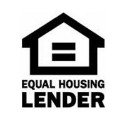Google 5-Star Rated Direct Hard Money Lender
What is a Owner Occupied Hard Money Loan?
An owner-occupied hard money loan is a short-term loan secured by real estate. These loans are used to purchase a property you plan on using as your primary residence. They offer faster timelines, flexible qualification, and easy access to funds. They can be used for a range of projects: rehabilitations, bridge financing, or renovations.
How Do Hard Money Loans Differ from Traditional Mortgages?
Hard money loans offer much greater flexibility and faster timelines than traditional loans. Their primary differences include:
- Securement method: Traditional mortgages are secured based on a borrower’s income, employment history, and creditworthiness. Owner occupied hard money loans are secured by real estate.
- Funding timeline: Hard money loans move much more quickly than traditional mortgages. They can be approved within 24 hours and funded within 10 days, rather than the 30 to 60 day timeline most banks offer.
- Underwriting flexibility: Owner occupied hard money loans require less documentation and offer more flexibility in financial history and property type.
What Defines an Owner Occupied Property for Hard Money Lending?
In hard money lending, an owner-occupied property refers to a property that the borrower intends to use as their primary residence. An owner occupied hard money loan is taken out to purchase or remodel a property that the borrower will live in.
In order to meet the requirements of an owner-occupied hard money loan, the borrower must:
- Move into the property within 30 to 60 days of closing and remain in the property for at least 6 months.
- Provide detailed documentation that shows intent, like a driver’s license address change, utility bills, or a signed owner-occupied affidavit.
Some lenders will make exceptions on owner-occupied hard money loans, like allowing temporary leasing during renovations phases. This is typically done on a case-by-case basis, so it’s important to discuss this with your lender before signing your loan agreement.
Who Qualifies for Owner Occupied Hard Money Loans?
People in a range of different circumstances may qualify for an owner-occupied hard money loan. These include:
- Real estate investors who plan on living in a fix-and-flip
- Self-employed individuals with non-traditional income streams who want to purchase homes
- Buyers with past credit issues like bankruptcies
While each hard money lender’s qualification requirements vary, they typically offer plenty of flexibility in terms of credit score. At Source Capital, we have no minimum credit score requirements. Specific lenders may also have specific debt-to-income ratios or liquidity requirements to qualify.
How Does the Application Process Work?
When applying for an owner-occupied hard money loan, there are a few things to know. Generally speaking, the application process is fast-moving and straightforward with little red tape. Read on to learn what to expect.
Required Documentation and Due Diligence Process
While owner occupied hard money loans require substantially less paperwork than traditional mortgages, there is some required documentation. Expect to provide the following:
- Identification
- Proof of residence
- Proof of collateral property ownership if different than residence
If your owner-occupied hard money loan includes a rehab project, you’ll also want to prepare the project scope and contractor bids. It’s advised to prepare clear and realistic renovation budgets and timelines to not only improve your chances of approval, but prepare for your impending loan exit.
Property Appraisal and Loan-to-Value Ratio Assessment
Once you’ve applied for your owner-occupied hard money loan, you can expect your prospective lenders to send appraisers to your collateral property. They’ll assess its value to determine your loan amount.
Underwriting Criteria and Approval Timeline
Next, it’s time for loan underwriting. During this process, your underwriter will review your title, inspect the condition of your property, and briefly review your finances. This process can take anywhere from a few business days to a week.
Once your lender completes underwriting and approves your loan, you’ll receive your funds. This may come in the form of a lump-sum payment, or a draw schedule for projects that include rehab.
What Interest Rates, Terms, and Fees Apply?

Owner-occupied hard money loans often come with higher interest rates, faster funding, and shorter terms. Read on to learn the details.
Typical Rate Ranges and Interest-Only Payments
Because owner-occupied hard money loans are higher risk than traditional mortgages, their interest rates tend to be higher. Rates on these loans typically range from 8% to 15%, depending on the specifics of each loan. At Source Capital, we offer interest rates between 8.99% and 11.99% for first-position, owner-occupied hard money loans.
One benefit of owner-occupied hard money loans is their interest-only payment structures. In most cases, borrowers are only responsible for interest payments throughout the duration of their loan, with a balloon payment at maturity.
Loan Origination, Servicing, and Exit Fee Structures
Like all loans, owner-occupied hard money loans include additional fees. Depending on your lender, these may include origination fees, monthly servicing fees, and exit fees, otherwise known as prepayment penalties. In some cases, these fees are rolled into the loan balance, rather than being charged in regular increments.
At Source Capital, we never charge penalties for paying off your loan early. We encourage borrowers to exit their owner-occupied hard money loans whenever feasible.
What Loan-to-Value Ratios Can Borrowers Expect?
When determining the value of your owner-occupied hard money loan, lenders look at a ratio known as LTV. This is a comparison of the loan amount to the value of the collateral property. At Source Capital, we offer hard money loans with an LTV of up to 65%.
Your exact LTV is determined by a number of factors, including your equity, property condition, location, borrower history, and more.
What Are the Main Benefits of These Loans?
Owner-occupied hard money loans offer borrowers a host of benefits not otherwise available through traditional mortgages. These include:
- Easier qualification: These loans are much easier to qualify for than traditional mortgages. Because they’re solely secured by rental property, those with poor credit, past bankruptcies, and other financial blemishes can easily qualify.
- Speed: Hard money loans move much more quickly than traditional loans. They can close within 7-10 days, substantially faster than traditional loans’ several-month timeline.
- Flexibility: Owner-occupied hard money loans offer a lot of flexibility when it comes to loan structure, terms, and draw schedules for rehab projects.
When to Use an Owner Occupied Hard Money Loan?
There are a range of instances in which an owner-occupied hard money loan may be beneficial. Consider this loan type in the following scenarios.
Rehab Loans and Fix-and-Flip Financing
Interested in making renovations to your current home before selling it? An owner-occupied hard money loan can be a perfect solution. This loan allows you to borrow against the value of your home, renovate it, then sell it for a profit and pay off the loan from the proceeds. Renovate wisely and you’ll be left with a larger payout.
Bridge Loans for Home Purchases
Owner-occupied hard money loans can also be a great solution for those looking to buy a new home, who haven’t sold their current home yet. These short-term loans provide the funds needed for your new purchase. All that’s left is to sell your current home within the terms of the loan and use the proceeds to pay your loan principal.
Common Mistakes When Securing Hard Money Financing
Don’t make these common mistakes with your hard money loan:
- Underestimating cost: If your hard money loan is for a rehab project, it’s vital to be realistic when estimating potential costs, as well as pad your budget for unexpected expenses.
- Unrealistic exit strategy: Another place it pays to be realistic is with your exit strategy. Whether you’re planning to sell, refinance, or payoff through another channel, a clear exit strategy is essential. A backup exit strategy is a good idea, too.
- Skipping due diligence: It’s also imperative to work with a reliable lender. Check your lender’s reputation, ask for referrals, and read online reviews before settling on your lender.
Frequently Asked Questions
What credit score requirements apply to these loans?
Owner-occupied hard money loans tend to have very flexible credit score requirements, if any. While some lenders may have minimum credit score thresholds, Source Capital has no credit score minimums. Anyone is encouraged to apply.
How long do typical loan terms last?
Loan terms for owner-occupied hard money loans are much shorter than other loan types. At Source Capital, our loan terms range from 12 to 24 months.
Can I refinance into a conventional mortgage later?
Absolutely. Refinancing is a go-to exit strategy for many borrowers. If you plan on refinancing your hard money loan, be sure to begin the process well in advance to ensure you can exit your existing loan in time.
What happens if I default on a hard money loan?
Defaulting on a hard money loan puts your collateral property at risk of foreclosure. If your lender decides to foreclose on your property, they’ll auction it off, use the proceeds to pay themselves off, then any other existing debts. If any money is left, you’ll receive it.
Are owner occupied hard money loans legal in all states?
Yes, owner-occupied hard money loans are legal in all states, but they have much more strict regulations than other types of hard money loans. Your lender should understand the specific requirements of the state in which they lend.
Conclusion: Key Takeaways on Owner Occupied Hard Money Loans
Owner-occupied hard money loans offer speed, flexibility, and easier qualifications to a range of different borrowers. Whether borrowing for a fix-and-flip, bridge loan, or any other purpose, a hard money loan may be the perfect solution to meet your real estate needs.
If you’re planning on applying for an owner-occupied hard money loan, it’s vital to be prepared. Think carefully about your financial needs, whether a hard money loan is a feasible solution, and how you’ll exit your loan when the time comes.
For a trust-worthy and experienced hard money lender, meet Source Capital. Our lenders have a combined 40 years experience and have funded over $550 million. Discover how Source Capital can help you access the funds you need today.








